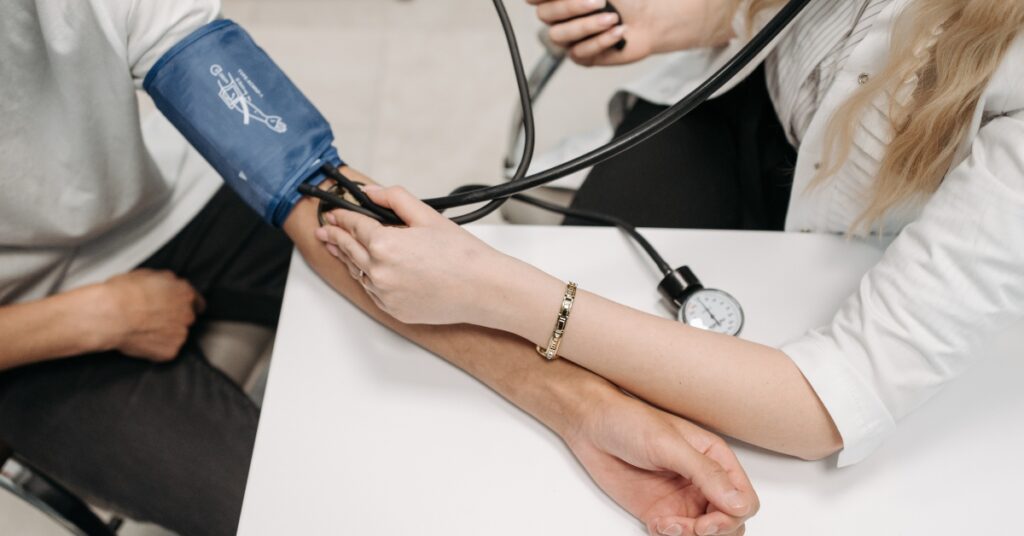By: Bec Harris
Blood pressure is something most of us rarely think about until a doctor mentions it. But should we care more? Dr. Stuart, from Village Medical Centre, explains why monitoring blood pressure is essential, even when we feel fine.
“High blood pressure is a silent killer,” he warns. “For the vast majority of people, it has no symptoms.”
What Is Blood Pressure?
Your heart is a pump. It pushes blood through your vessels to your organs. Blood pressure measures how hard the heart works to do that. “It’s the pressure of blood against the vessel walls,” Dr. Stuart explains.
Two numbers matter:
- Systolic (top number): pressure when the heart squeezes.
- Diastolic (bottom number): pressure when the heart relaxes.
A healthy range is about 120/80. “The lower the blood pressure, the better unless you’re fainting,” says Dr. Stuart.
When Pressure Becomes a Problem
Blood pressure naturally rises with age. Vessels stiffen, so the heart must push harder. If your readings consistently rise above 140/90, it’s hypertension.
“Hypertension just means persistently raised blood pressure,” Dr. Stuart says. “It’s not compatible with a long and healthy life otherwise.”
The Challenge of White Coat Hypertension
Sometimes, blood pressure spikes at the doctor’s office. This is called white coat hypertension.
One caller, Barbara, shared her story: “For six years I was on medication. But a 24-hour monitor showed my blood pressure was normal. It only spiked at the GP’s.”
Dr. Stuart agrees more clinics should use these monitors. They provide a clearer picture of what’s happening outside the doctor’s office.
Can Lifestyle Changes Help?
The good news? Yes. “Weight is a significant contributor,” Dr. Stuart explains. “For every five kilograms gained, blood pressure rises noticeably.”
Other lifestyle tips include:
- Reducing salt and alcohol.
- Exercising regularly.
- Managing stress.
- Quitting smoking.
Sometimes medication is necessary, but often small changes make a big difference.
Don’t Wait for Symptoms
You can’t feel high blood pressure. The only way to know is to measure it. “If you’re in doubt, get it checked,” Dr. Stuart advises. “A chemist can do it, or see your GP.”
Article supplied with thanks to Sonshine.
Feature image: Canva





